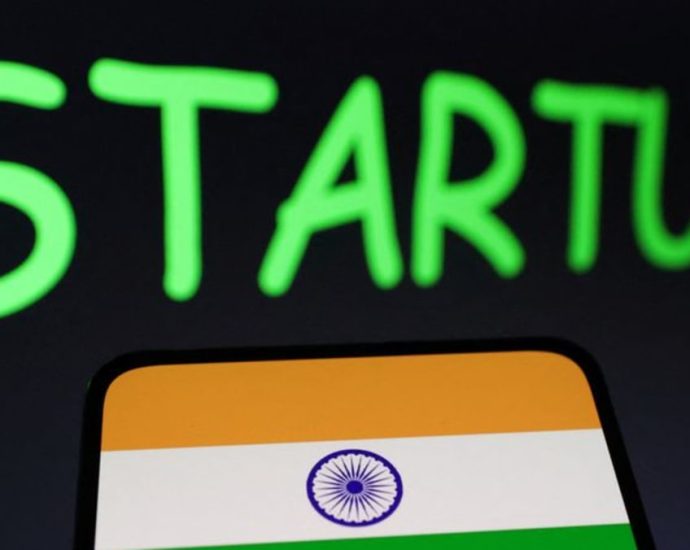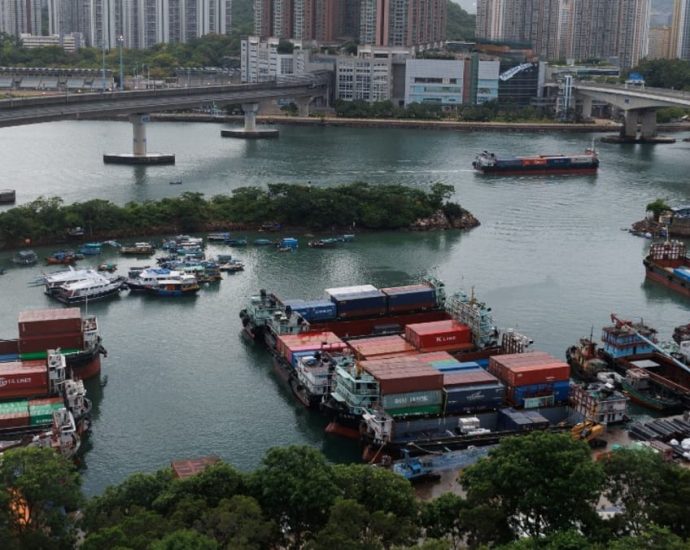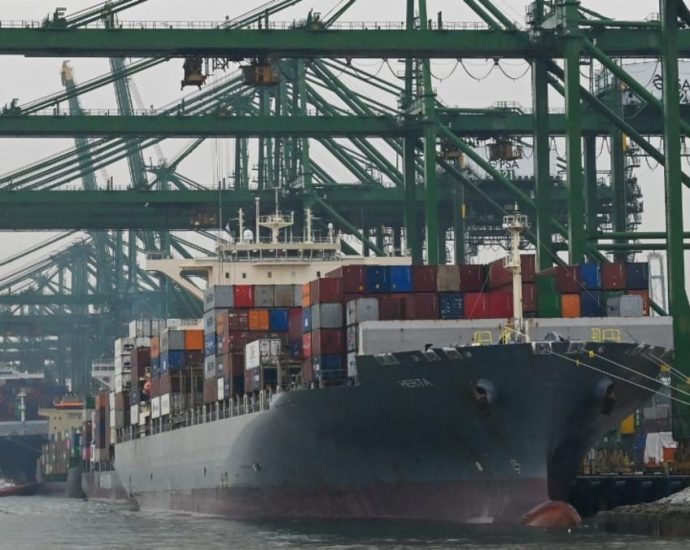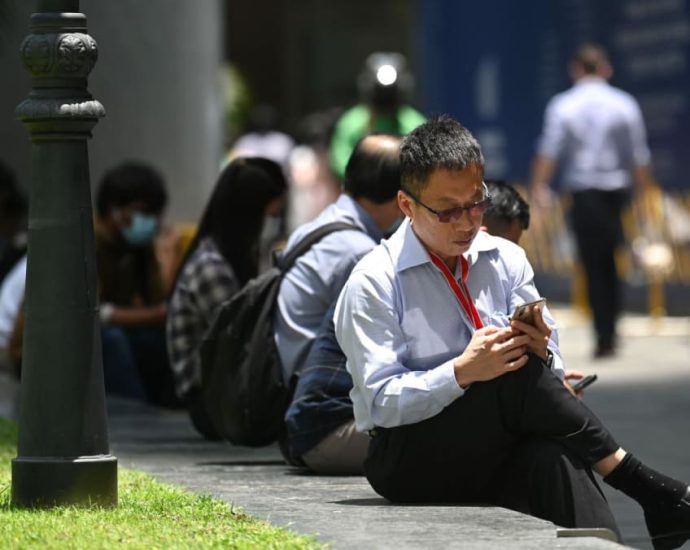Russia seizes control of Danone and Carlsberg operations
 Reuters
ReutersRussia has taken control of the Russian subsidiaries of yoghurt maker Danone and beer company Carlsberg.
The units have been put in “temporary management” of the state, under a new order signed by Russian President Vladimir Putin.
Moscow introduced rules earlier this year allowing it to seize the assets of firms from “unfriendly” countries.
This came after many companies halted business in Russia following its invasion of Ukraine.
Danone and Carlsberg were in the process of selling their Russian operations.
Sunday’s order places the shares of Danone Russia and the Carlsberg-owned Baltika Breweries under the control of Russian property agency Rosimushchestvo.
France-based Danone, which started the process to sell its Russian business last October, said it was “currently investigating the situation”.
The firm added that it was “preparing to take all necessary measures to protect its rights as shareholder of Danone Russia, and the continuity of the operations of the business”.
Carlsberg said it had not received “any official information from the Russian authorities regarding the presidential decree of the consequences for Baltika Breweries”.
The Danish brewer also said it had completed an “extensive process” to separate the Russian unit from the rest of the company. Last month, the company signed an agreement to sell Baltika Breweries but had not yet completed the deal.
“Following the presidential decree, the prospects for this sales process are now highly uncertain,” it added.
In April, Mr Putin signed an order allowing Russia to take temporary control of foreign assets, in response to actions by the US and other countries that Russia said were “unfriendly and contrary to international law”.
Also in April, it was announced that the Russian units of two energy companies – Germany’s Uniper and Fortum of Finland, had been brought under state control.
Danone’s Russia operation is the country’s largest dairy company, with around 8,000 employees.
It was estimated that the sale of the business would result in a €1bn ($1.1bn; £860m) hit for Danone.
Meanwhile, Carlsberg subsidiary Baltika produces some of the most recognisable beer brands in Russia, with 8,400 employees across eight plants, according to Carlsberg’s website.
Related Topics
Indiaâs startup sector feels the chill amid global funding winter
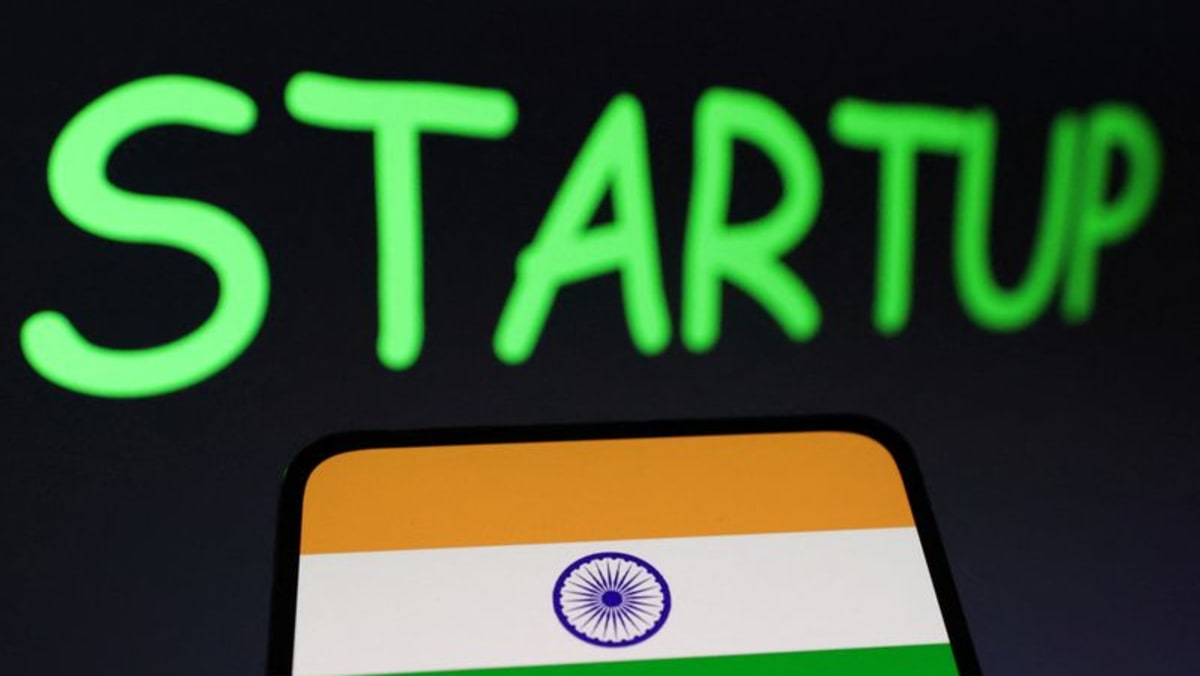
The firm said that while it has enough capital for the moment, it has generally been a tough time for Indian startups trying to raise funds.
“With the funding winter here, there have been some ups and downs in the market because of largely macroeconomic factors like inflation, global economy slowing down, the Ukraine war and so on,” said its founder Prashant Bhonsle.
CRUCIAL TO INDIA’S ECONOMY
There are about 80,000 startups registered in India, according to government figures.
Valued at more than 3 trillion rupees (US$36 billion), the sector has become an increasingly important part of the nation’s economy.
A record number of these firms have become “unicorns” – a term used to describe startups valued at over US$1 billion – in recent years.
However, the number has slowed drastically amid the funding winter.
Research firm Hurun reported that only three companies have become unicorns in India this year, compared to 24 by this time last year.
At their peaks, the valuations of firms became overinflated and capital was being deployed into startups with unsustainable business models, according to analysts.
Investors have revised their valuations of big name Indian startups downward, including food delivery app Swiggy and education technology company Byju’s.
Major global investment firms including Tiger Global Management and Softbank Group are now doing fewer deals in India.
A SILVER LINING?
Industry experts said venture capital and private equity investors are being much more rigorous in their assessments and cautious about which companies they choose to invest in.
However, this may not all spell bad news for India’s economy and startup scene, they noted.
“The reset that we are experiencing right now is going to be healthy for the economy in the long term,” said advisory firm Bexley Advisors’ managing director Utkarsh Sinha.
“This is going to lead to the creation of very good and robust companies which are focused on having a line of sight towards profitability or exits.”
While there are still funds to be deployed, analysts are urging startups to be realistic about their valuations and have sustainable business models in this environment, in order to survive.
“The ones who are waking up to that reality and building that bridge to the other side will do well. Those who don’t, unfortunately, would probably not survive this winter,” said Mr Utkarsh.
Despite the correction, industry players are optimistic about brighter days ahead.
Analysts said there remains plenty of scope for companies to come up with solutions and offer services in the world’s most populous country.
Industry insiders are hopeful that India’s startup ecosystem will emerge stronger once the winter thaws.
Talim forecast to hit southern China as a typhoon late Monday
BEIJING: Severe tropical storm Talim is forecast to make landfall as a typhoon in the south of China on Monday (Jul 17) night, the country’s weather forecaster said, with local authorities cancelling flights, recalling ships and warning residents to stay home. China Meteorological Administration issued an orange alert for TalimContinue Reading
Dear HNWIs, your next vehicle should be fully electric
Doubts about range, batteries and environmental cost are greatly exaggerated
Cheapest EVs come with a range of 380km, while battery prices keep falling
Range anxiety, charging infrastructure, battery replacement – these are the biggest fears people have when considering an electric vehicle. Let’s also add environmental costs to this list – specifically the issue around…Continue Reading
Singapore’s key exports fall by 15.5% in ninth consecutive month of contraction
SINGAPORE: Singapore’s non-oil domestic exports (NODX) contracted for the ninth consecutive month in June, falling by 15.5 per cent, with both electronics and non-electronics seeing a decline. The drop follows a 14.8 per cent decrease in May and a 9.8 per cent contraction in April. The latest figure was slightlyContinue Reading
Australian sailor and his dog survive two months at sea
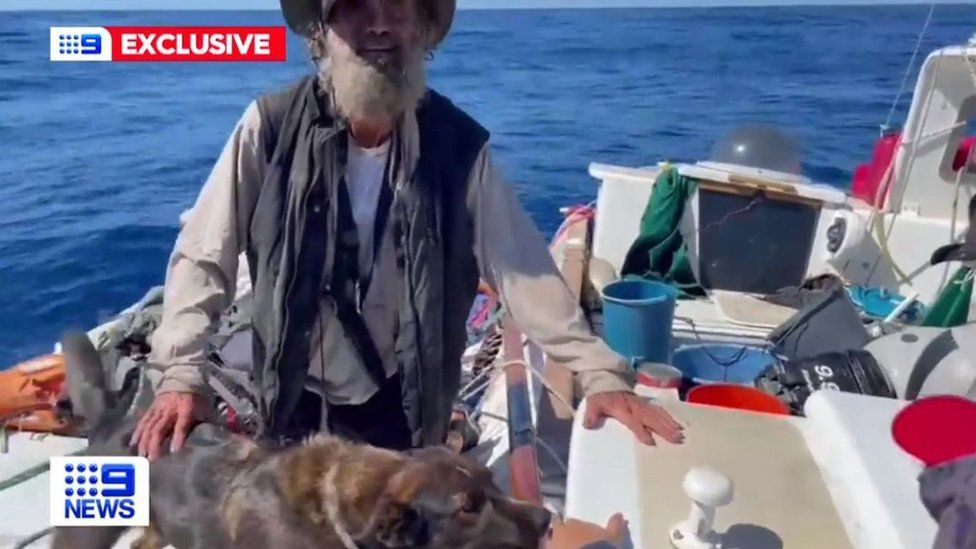 9 News
9 NewsAn Australian sailor who survived two months in the Pacific Ocean by eating raw fish and drinking rainwater is “stable and very well”, a doctor says.
Sydney resident Tim Shaddock, 51, and his dog Bella left Mexico for French Polynesia in April, but their boat was damaged by a storm several weeks later.
They were rescued by a trawler this week after a helicopter spotted them.
The doctor aboard the tuna trawler told Australia’s 9News that the man had “normal vital signs”.
Mr Shaddock embarked on his more than 6,000km-long (3,728-mile) voyage from Mexico’s city of La Paz – but soon became stranded after his vessel’s electronics were cut off by bad weather.
It left the sailor and his dog drifting in the vast and hostile North Pacific ocean.

When they were finally found off Mexico’s coast two months later, he was far leaner and sporting an overgrown beard.
“I have been through a very difficult ordeal at sea,” he told 9News.
“I’m just needing rest and good food because I have been alone at sea a long time. Otherwise I’m in very good health.”
Mr Shaddock said fishing gear had helped him to survive.
He also managed to avoid sunburn by sheltering under his boat’s canopy.
Soon after his rescue he was seen smiling and wearing a blood pressure monitor on his arm.
He is also able to eat small meals.
The tuna trawler is now heading back to Mexico where Mr Shaddock will undergo medical tests and receive more treatment if needed.

You may also be interested in:
This video can not be played
To play this video you need to enable JavaScript in your browser.

Related Topics
-
-
5 November 2019

-
-
-
26 September 2018

-
-
-
8 March 2017
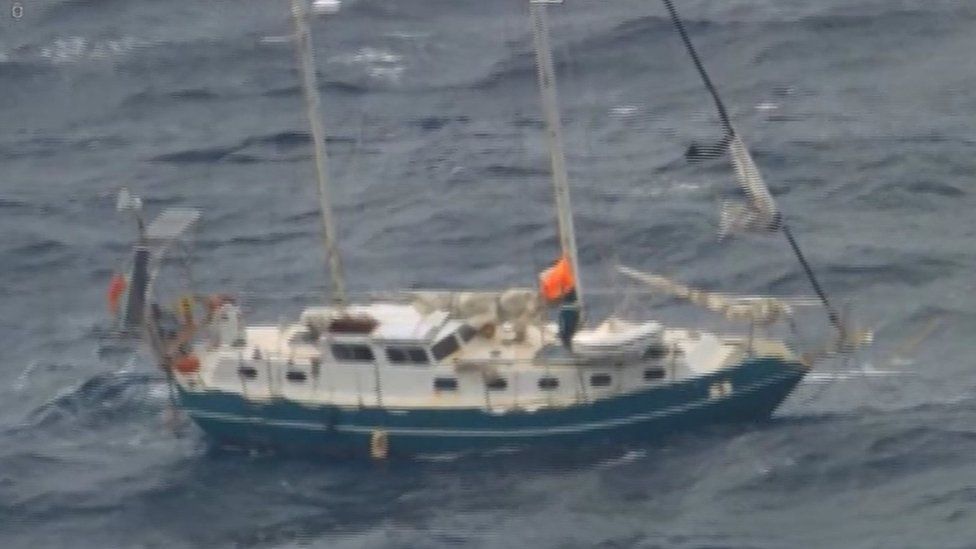
-
-
-
30 November 2011

-
Phangnga airport ‘needed’

Phangnga airport study ‘must carry on’
PUBLISHED : 17 Jul 2023 at 07:07
The Joint Public and Private Sector Consultative Committee (JPPSCC) in the Andaman provinces has urged Airports of Thailand (AoT) to continue its feasibility study on Phangnga Airport.
A meeting of the JPPSCC in the Andaman provinces of Krabi, Trang, Phangnga, Phuket, Ranong and Satun was held recently to continue talks with Phuket Airport after the AoT decided to defer the project.
Jaran Pandang, deputy director of Phuket Airport, said the AoT’s policy, planning and budget committee decided to defer the plan to build Phangnga airport because the AoT must abide by a cabinet resolution from August 2022.
The cabinet ordered the AoT to oversee the management of Udon Thani, Buri Ram and Krabi international airports and suspended the plan to build an airport in Phangnga.
The AoT received an 11-million-baht budget in November 2020 for a preliminary feasibility study for the airport.
The terms of reference were set in May 2021. The investment needed is around 100 billion baht and the airport could be complete in 2027. But the project has been suspended since last year.
Lertsak Ponklin, president of the Phangnga Tourism Association, urged the JPPSCC to ask the AoT to keep the project going as it could take up to 10 years to build the airport.
Phuket airport has reached its full capacity of 14 million passengers a year. If it is expanded, it can handle up to 17 million, still below its peak period when it handled about 18 million passengers prior to the Covid-19 pandemic, he said. “I cannot imagine when the economy picks up and when it is high season, how crowded Phuket airport will be. So, we need to prepare,” Mr Jaran said.
How long does it take for a swallowed coin, battery or magnet to pass through a childâs body?

So, what has the study found? According to Assoc Prof Aw, 50 per cent of the button batteries were passed out by Day 4 and 100 per cent by Day 7. “For coins, 50 per cent were passed out by Day 8 and 100 per cent by Day 37,” she said.
“This means we can potentially advise parents that they can wait till Day 30 to see if the coin has been passed out spontaneously, and we do not have to see the child unless the coin has not been passed out after five weeks. But for children who swallowed batteries, we may want to see them by Day 7,” she said.
HOW LONG DO OBJECTS TAKE TO BE PASSED OUT ANYWAY?
“The way swallowed objects pass is very similar to the passage of food,” said Assoc Prof Aw. But because these objects are not digested, “there are certain parts of the gastrointestinal tract” where “these objects are more likely to get stuck”.
These are usually the “transition points” such as where the oesophagus connects to the stomach, the stomach to the small intestine and the small intestine to the large intestine, she said.
If the object is not lodged in the throat but progresses down the oesophagus, it would enter and exit the stomach, and pass into the small intestine within four to six hours. “However, it is also possible that it may take more than one to two days for it to pass out of the stomach. For safer objects such as a coin, we can sometimes wait up to several weeks before active intervention,” said Assoc Prof Aw.
Commentary: The lack of democracy in Thailand has been revealed
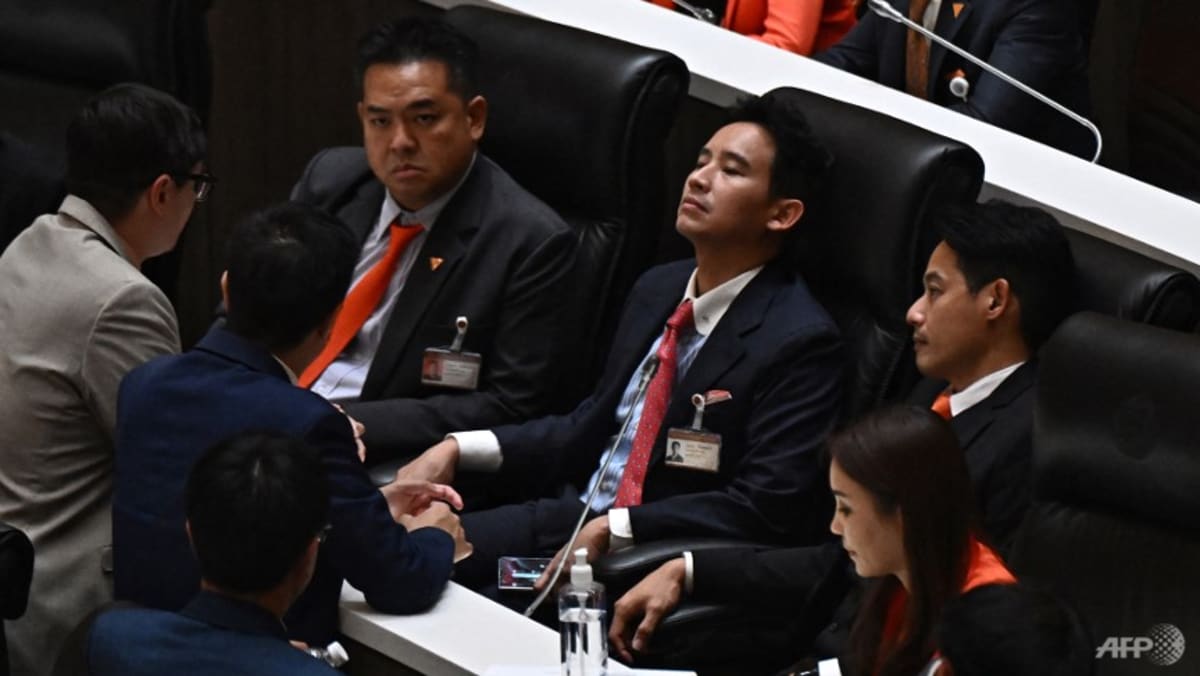
VOICE OF THE PEOPLE IGNORED?
Looking towards the medium to long term, the implications of these developments extend far beyond party politics. They have the potential to ignite substantial frustration and discontent, particularly among those who perceive Pita’s failure to secure the necessary support as evidence that the democratic process has been compromised by actors and institutions that prioritise their own interests over the popular will.
This growing disillusionment among the public may intensify calls for political reforms and a thorough re-evaluation of the role and accountability of various power structures within the political system, such as the Senate, the Constitutional Court, and the Election Commission.
However, the absence of a clear and effective pathway for formally addressing these grievances poses a significant challenge. For instance, to revoke the Senate’s authority to jointly select the prime minister, amending Section 272 of the Constitution is necessary. But amending the Constitution requires the backing of at least one-third of senators, as stipulated by Section 256.
The limited avenues for meaningful engagement and redress can further erode public trust in the existing political institutions, leading to widespread mobilisation and street protests with ever-increasing frequency and intensity. That said, however, historical precedents have shown that social unrest and emergencies are often used as a pretext for the military to intervene in the name of maintaining peace and order.
In conclusion, the political future of Thailand hangs in the balance. If the selection process fails to produce a successful candidate for the role of Prime Minister, Section 272 (2) of the 2017 Constitution allows for the possibility of an outsider being considered as a potential candidate for the position. This scenario remains unlikely due to stringent requirements; moreover, there is no guarantee that the candidate would serve as a neutral arbiter or independent third party.
Ultimately, these developments underscore the stark reality that leaders in Thailand are not elected by the will of the people but rather permitted to rise to power with support or at least acquiescence of the conservative establishment. Now that the true nature of democracy, or the lack thereof, in Thailand has been revealed, it remains to be seen what actions and measures will be taken by the Thai people whose voice and choice seem to have been trampled upon.
Napon Jatusripitak is Visiting Fellow in the Thailand Studies Programme at ISEAS – Yusof Ishak Institute, and PhD Researcher at Northwestern University. This commentary first appeared on the Institute’s blog, Fulcrum.
Commentary: Gone are the days when workers can rely on a single job for their entire career
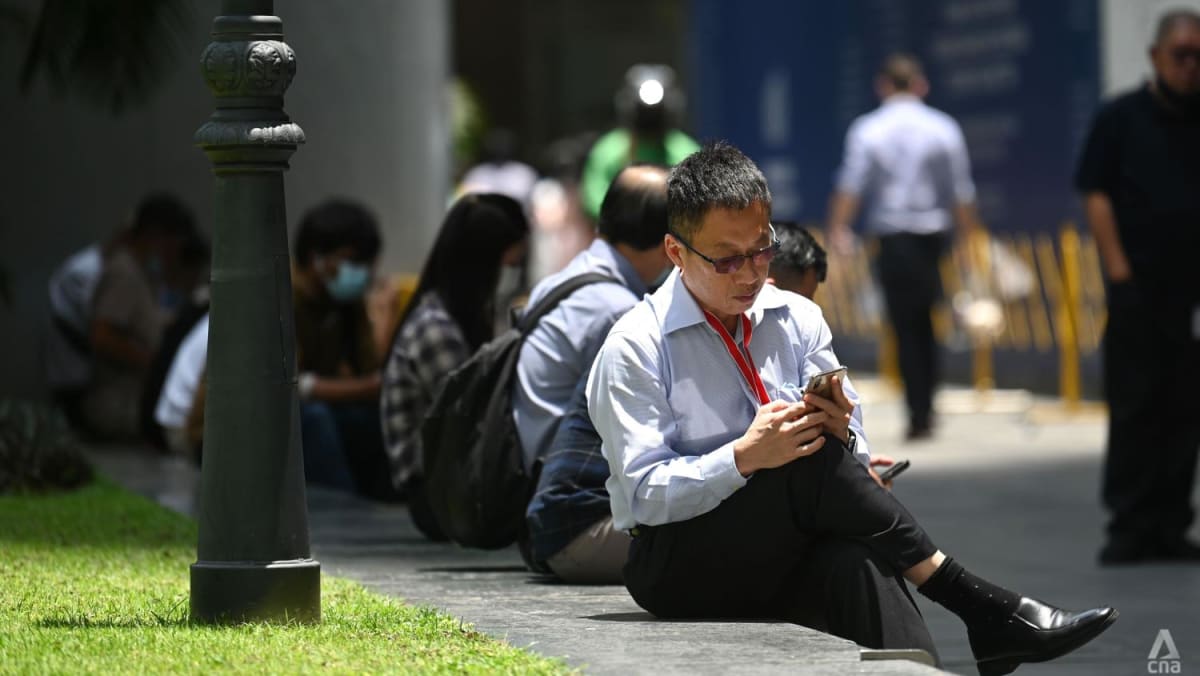
A survey of 1,000 US executives by Resume Builder in January found that 66 per cent of respondents had taken a salary cut in the past six months, with 94 per cent saying it was to prevent or reduce layoffs.
All options put a mental and emotional strain on workers and those around them.
FOCUS ON CAREER SECURITY, NOT JOB SECURITY
However, instead of worrying about job security, how about striving for career security?
Job security is all about making sure your job will still be there until the day you retire. In today’s volatile world of cheap labour and artificial intelligence, being anxious about this is futile – no job is guaranteed.
On the other hand, by making sure that your skills are relevant and honed, and your knowledge current and deep, any company would love to have you on their team. This is something that everyone can work towards.
Being so good at what you do, that you are constantly in demand by the market is what we define as having career security. You will no longer need to worry about whether your company has a job for you – if you have career security, you will always have options at your disposal, both internally and externally.






